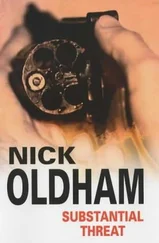1 ...7 8 9 11 12 13 ...88 There was a pain in his back and a warning sense of overstretch in his shoulders. He stared down at his hands — raw and bloody and sliced across the knuckles — and then looked up to see how much desolation he had wrought. He hoped it wouldn’t be too bad. Then he had to look around twice more to make sure he hadn’t lost his way in the fog of soldier’s gardening. But it was true.
He was almost five feet from the door. He had worked for nearly a whole day, in a straight line, and come less than his own height into the forest. He stared out at the vast field with a sense of awe. They should send military planners here, he thought, to learn about insurgency.
During the night, his hands had swelled up, red and harsh, and when he tried to wash them the following morning the warm water felt like fire and he screamed. He couldn’t use the radio because his fingers were too swollen, so he walked to Beauville and showed his hands to the boy, whose eyes grew very wide. The boy reached out and took his wrists, gently turned the big red slabs this way and that, and then removed from his knapsack a very old Swiss Army knife, and unfolded the magnifying glass. He peered at the scrapes and cuts, and showed them to the Sergeant through the lens. Ragged, as if he had burned them on tiny ropes. A bead of clear plasma rose from one of the little holes, a puff of red cells within. The boy sighed like an older brother.
‘Tomatoes,’ he said. ‘You cut tomatoes. With your hands?’
‘Yes.’
‘Next time, with grenades!’ the boy said, and mimed throwing one. ‘Ka-blam! Already cooked.’ He sighed again, then removed from the side pocket of his bag a small pot, and, using his little finger, touched a tiny flake of the wax within to the Sergeant’s hand. The relief was ecstatic, so sudden it almost hurt. He gasped.
‘Good?’ the boy asked.
‘Yes! Where can I get some?’
The boy administered more salve, but sparingly. He looked concerned. ‘You better come with me. See the Witch.’
‘What witch?’
‘She is American, the good kind. Johns Hopkins. That is a very good school.’
In the Mancreu worldview, Americans were people who got up early and ran five kilometres before breakfast and urged you to improve yourself. They seemed to believe that the right mixture of Nike, granola and hard work would turn anyone, anywhere in the world, into a millionaire. And, of course, there were darkside Americans too, the ones where all that virtue and enthusiasm found its outlet in villainy, whether for personal gain or the security of the state. It was tricky, with Americans, because you never knew which you were getting. But the boy was a brand snob. Johns Hopkins was a good school, so the Witch was at least somewhat acceptable.
‘She’s a doctor?’
‘She is a witch,’ the boy said. ‘She has warts. It is very traditional.’
In the event, the Witch had no warts. She was actually rather beautiful, in a distracted way. The Sergeant knew it was a beauty the boy would not be able to see because he was young.
‘Lester,’ the Sergeant said, when she asked his name. ‘Lester Ferris.’ He listened to it, wondering. ‘Lester Ferris.’ It suited someone else.
The Witch was looking at him, and he realised he had been repeating the words in different tones, trying them out. ‘Sorry.’
She nodded. ‘Soldier?’
‘Yes. Well. Not for much longer. Retiring.’
That apparently concluded the smalltalk. ‘Show me,’ she said, then winced when he dutifully extended his arms.
He felt the need to apologise. ‘I wasn’t intending. .’ To go berserk? To see the red mist and fill up with hate for a yard full of fruit? ‘I didn’t know this could happen,’ he amended firmly.
She turned his hands. He half expected her to say they’d have to come off. She wore a pair of loose trousers and a kind of long shirt with pockets at the hip. It smelled of turpentine, and he wondered if she was an oil painter as well as a witch.
‘The tomatoes retain some of the chemicals in the Discharge Clouds,’ she said. ‘Not in the fruit,’ as he stared at her aghast, ‘but in the leaves and stems. They break down into. . well. You washed yourself in all kinds of puke.’
He twitched. The word ‘puke’ sounded wrong from her, like a duchess with only one ear.
‘I’ll make a salve up for you. Do you want something for the stress, as well?’
He wasn’t sure what that meant.
‘Right,’ she muttered. ‘My mistake.’ She looked at his right hand more closely, and growled. ‘Damn.’ She tugged on his right ring finger. ‘What’s this?’
The finger was crooked, price of a scuffle a million years ago. Was it in the line, or in a barracks somewhere? The Sergeant couldn’t remember. He couldn’t feel anything in it at all. He explained. She left him there, rummaged, came back. He was expecting the salve, but instead she carried a roll of twine and a wicked little hooked knife, the kind used by fishermen for nets and by farmers for gelding. He devoutly hoped she proposed to fish, but she did not. She reached over, back, and pasted something onto his finger, then cut a short loop of twine and tied it tightly around the base. ‘Look away,’ she said, and when he didn’t she sighed again and said, ‘All right.’
Something wriggled in his hand, a muscle in spasm. A tired finger. That finger. Dead, but now it wriggled.
She took the hook knife, and he reached over with his other hand to pass her the string, but suddenly she was cutting open the pad of his red, sausage finger along the line of one of his grazes, a deft, deep aperture welling blood and pus and something else, a grey-blue thing with a leech mouth, and then the grey-blue thing was a vein and the leech mouth belonged to a black worm which she nailed to the table with the point of the hook knife, and she slammed his hand deep into a jar of clear water which smelled wrong and it bubbled — cauldron! — and he recognised the smell, a kind of disinfectant he hadn’t seen since Bosnia. The worm writhed on the table, bleeding. Probably bleeding his blood as well as its own.
‘Hate those little fuckers,’ she said. ‘After a few months they can get into your brain. Disgusting way to die. I told you to look away,’ she added unsympathetically as he retched. ‘Don’t you dare spew on my carpet.’ But then she relented and agreed that it must be quite a shock, and gave him a dozen tablets, once a day with food, to make sure he didn’t get infected.
‘Thank you,’ he said.
‘Breanne,’ she replied.
‘What?’
‘Breanne. My name. Not Brian or Briony. Breanne.’
‘Thank you, Breanne.’
‘What are you doing in Mancreu, Lester?’
‘I honestly have no idea.’
‘You’re with NatProMan?’
‘No, I’m at Brighton House.’
She stared at him for a second, as if he’d claimed to have come from another world, and then blinked. ‘Oh,’ she said. ‘You’re him.’
‘Yes.’ But if that meant anything to her, good or bad, she evidently felt no need to pass it on.
He dawdled, inventing twinges and concerns, until she smiled and very politely kicked him out.
After that, the boy determined his friend needed to spend more time relaxing. ‘You come and meet people,’ he ordered. ‘Learn Moitié!’ The word was short for ‘moitié-moitié’, literally ‘half and half’, the Swiss name for a fondue made with a mix of cheeses and the Mancreu name for the mishmash French-Arabic they spoke when they couldn’t be bothered with English.
The Sergeant had tried to tell him he was tired, or that he couldn’t for official reasons, but there was, he discovered, nothing more persistent than a small boy of uncertain parentage and various talents who has decided he wants to show off his expertise in haggling to his big, slow friend. The boy crouched on the passenger seat of the Land Rover and pointed: ‘There! Left! No, totally the other left! Hashtag: SATNAVFAIL! Zomg!’ And then they would arrive in a side street or at a corner shop with a faded board outside advertising something as unhelpful as ‘fish’, and the boy would be welcomed, greeted like a prince, and there was a special price, yes, of course.
Читать дальше
Конец ознакомительного отрывка
Купить книгу











